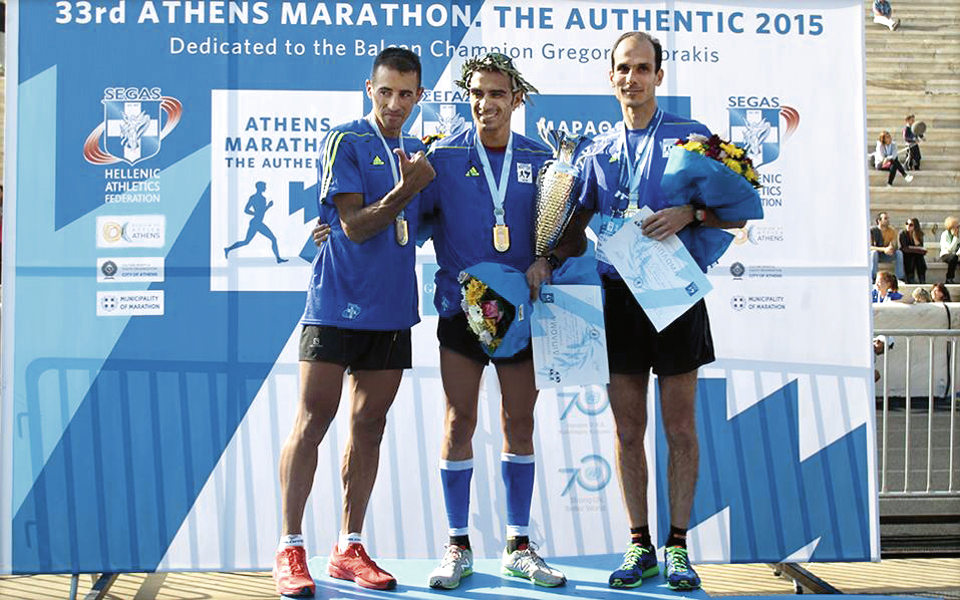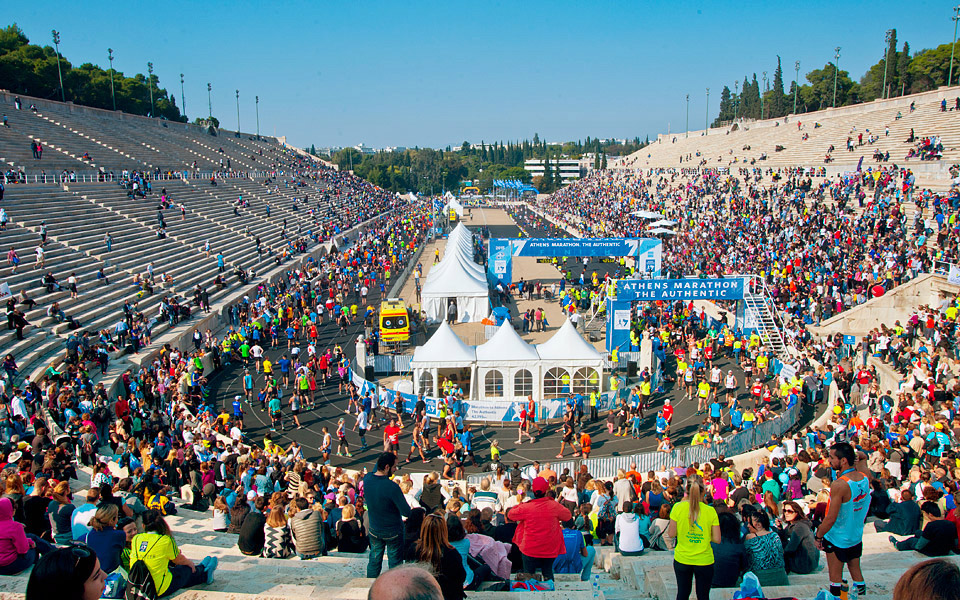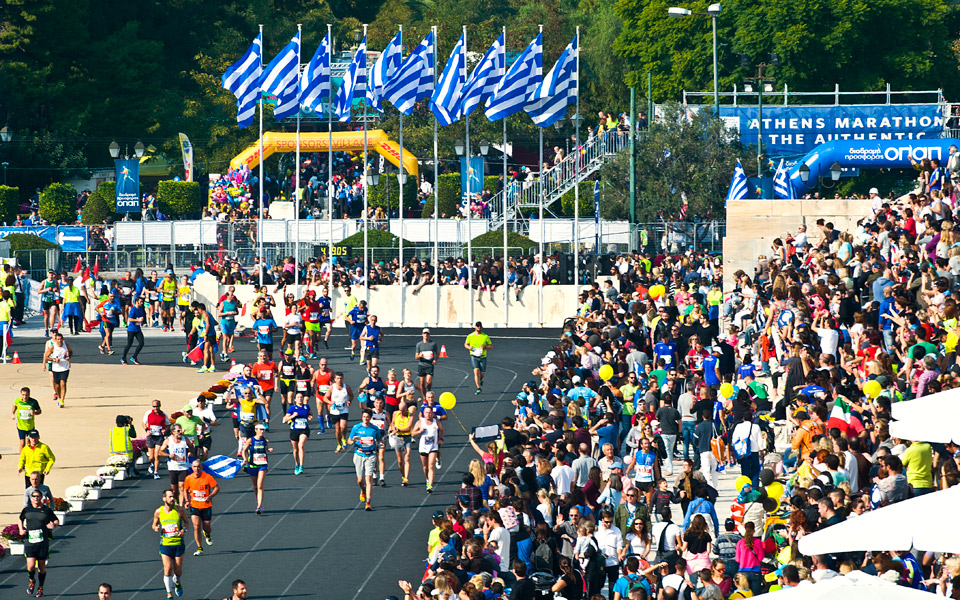Central Athens was flooded by a sea of people of all shapes, shades, ages and styles. Many of them were wearing white T-shirts with blue numbers and were wrapped in silver thermal blankets that spakle brightly. Some hobbled along in agony; others stopped to stretch their muscles in random places – like on a broken ancient column next to Hadrian’s Arch. Floating along like lifeboats were buoyant bunches of families, friends and other folk drawn by the buzz. Holding up homemade signs or balloons , they dedicated this spring-like November morning to supporting loved ones striving to cross the finish line.
“Zorbas’ Dance” by Mikis Theodorakis blared through the loudspeakers at the Panathenaic (Kalimarmaro) Stadium, a hint that organizers may be suffering from musical neophobia, while a boisterous male Greek voice announced all the new finishers. On the other side of Vassileos Constantinou Avenue, over which throngs crossed on temporary metal bridges, the Athens National Gym at Zappeion was hosting the “party of the day.” To a booming dance hit soundtrack that compelled you to move to the beat, children bounced up and down on trampolines, runners received massages in the middle of a basketball court and the less athletic chilled out at tables eating pizza and kalamakia (skewered grilled meat) and guzzling cold beer.

This was the 33rd Athens Marathon – billed “The Authentic” – which attracted a record-breaking 43,000 participants (among them 6,000 foreign entrants from 100 countries) for the classical 42.195k route or the shorter 10k and 5k runs. The event also had children’s and Special Olympics races.
The winner of this year’s men’s marathon was Greek runner Christoforos Meroussis, who crossed the line in an impressive 2:21:22 (just a couple of minutes above his Berlin Marathon time of 2:19 in September), while Japanese Minori Hayakari won the women’s race in 2:52.06.
Unfortunately, the experience was not as glorious for the 19 runners who ended up in hospital due to injury or fatigue. “The bright sunshine and high temperature – it was around 23C – definitely made the run a lot more difficult to handle, but in my experience, it’s all about the right preparation. Runners should really make sure they train properly for something as incredibly demanding as the Athens Marathon, by running consistently for around a year leading up to the event, as well as having a medical check-up that involves, for example, a cardiac stress test,” said runner Natasha Giannousi, who made the trip from Oxford in the UK, to run the 10k route.
“ This year’s men’s Marathon winner was Greek runner Christoforos Meroussis, who crossed the line in an impressive 2:21:22, while Japanese Minori Hayakari won the women’s race in 2:52.06.”

© Clairy Moustafellou
“Serious runners are also well set up with the right gear as well as energy snacks and hydration,” added Giannousi, who has run six Athens Marathons and another five in places as far and wide as Rwanda and Berlin. “This year’s event was very positive overall,” she underlined. “The most important thing about this year’s Marathon is how varied and enthusiastic the participation was. The enthusiasm is there every year of course, but this year I saw more participants. What impressed me the most were there 2,500 volunteers who helped athletes at every level and made the experience even more successful.”
Due to capital controls this year, the Greek athletics federation which organized the event, SEGAS, could not afford to invite any elite athletes as in previous years. Yet, despite this tighter budget the Greeks who took part in or supported the event revealed nothing if not a great sporting spirit.
“ The most important thing about this year’s marathon is how varied and enthusiastic the participation was.”












